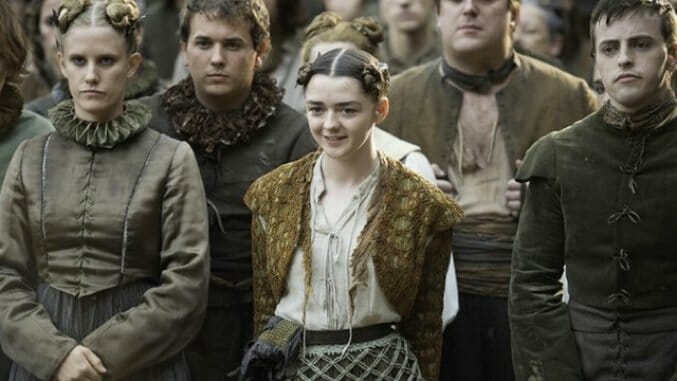Paste‘s 20 Most Popular TV Stories of 2016

Technically speaking, the following 20 stories aren’t actually the most popular we published in 2016. If we went strictly by the numbers, this list would be dominated by, well, lists: of the 25 Best TV Shows of 2016, of the 20 Best Sci-Fi Shows on Netflix or of the 100 Best Sitcoms of All Time, which might grow a bit tiresome 20 times over.
Instead, we’ve collected the 20 most-read essays and reviews from a remarkably strong year in TV, with a limit of one piece per series. (Sorry, Game of Thrones and Stranger Things, only one item apiece.) From small series with passionate fan bases—Steven Universe, Shadowhunters—to the subjects of countless water cooler conversations—The People v. O.J. Simpson, Black Mirror—here’s a taste of what you loved in 2016, and what we promise to bring you more of in 2017.
20. What’s the Matter with the Rock ‘n’ Roll TV Series?
Author: Matt Brennan
Publication Date: August 22

“Next phase, new wave, dance craze, anyways: It’s still rock ‘n’ roll TV.”
19. For the Makers of Amazon’s Mozart in the Jungle, the Drama of Classical Music Is Crystal Clear
Author: Kenji Fujishima
Publication Date: December 8

”[T]he series is, in many ways, a classic backstage comedy-drama, rife with competing egos and tensions between art and commerce. But the milieu gives it a specificity, one that, for all its exaggerations and gestures toward surrealism, speaks to real issues in the classical-music world.”
18. Sense8 Christmas Special: The Empathy and the Ecstasy
Author: Matt Brennan
Publication Date: December 22

“For all the flaws in its construction, Sense8’s Christmas special distills the series’ courageous gambit into a handful of sublime sequences, three or four of which—despite being utterly indulgent—left me grinning from ear to ear. (Certainly, nothing else on television is brassy enough to feature a musical montage that becomes a dance number that becomes a queer, multiracial bathroom-stall birthday orgy, a few minutes so joyous they’ll tide me over until the series’ second season debuts in May.)”
17. Cillian Murphy of Peaky Blinders is Giving the Best Performance on TV Right Now
Author: Brogan Morris
Publication Date: June 20

“So good he could stay silent for the rest of the show’s run and still remain a compelling lead, Murphy is the reason to keep watching Peaky Blinders even when it dips. The actor never quite made it as the star he perhaps deserved to be on film, but on television he’s luckily found a platform to reveal himself as a leading man in the young Pacino mold: given to explosive rage, but mostly so quiet and infinitesimally subtle you might not even notice the immensity of the performance. It’s often all in the eyes. Those eyes which Tommy uses to brutally survey his enemies, which occasionally bulge with rage, or swell with sporadic emotion, are those of an artist operating at his peak.”
16. How Netflix’s The OA Shows Its Independence from the Usual Sci-Fi Fare
Author: Rachel Brodsky
Publication Date: December 26
-

-

-

-

-

-

-

-

-

-

-

-

-

-

-

-

-

-

-

-

-

-

-

-

-

-

-

-

-

-

-

-

-

-

-

-

-

-

-

-
























































